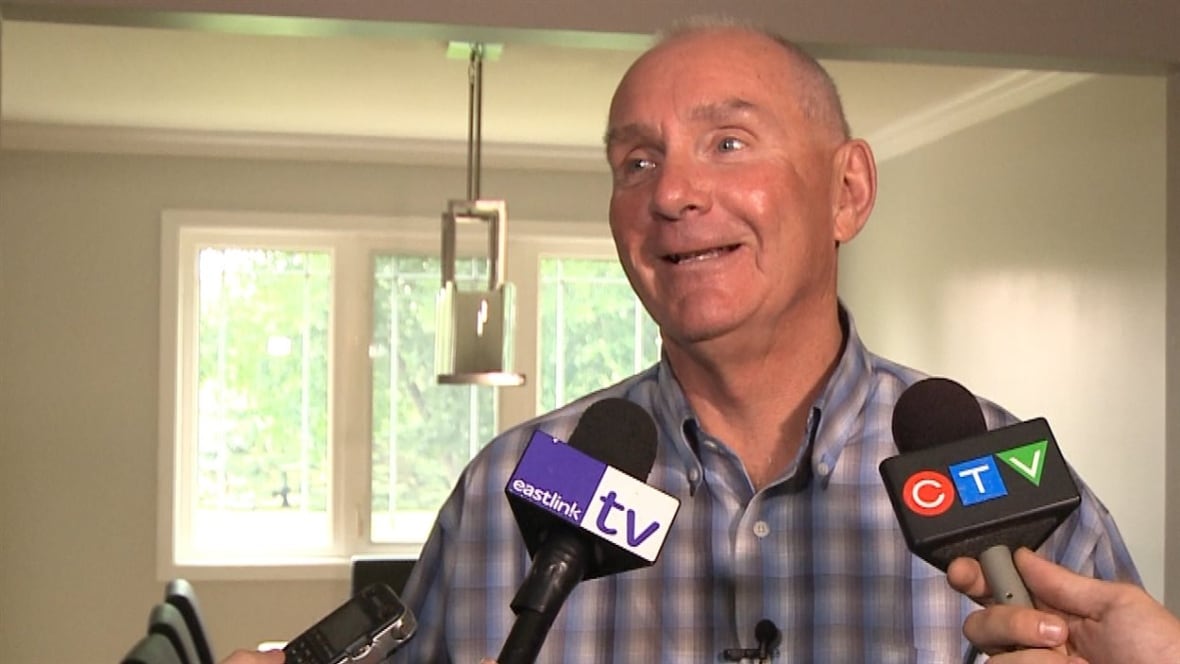'This is not going to go away quietly': Greater Sudbury's fire department continues to be a hot topic
Final public meetings scheduled for Wednesday and Monday, followed by upcoming vote at city council
A month of public meetings on the future of fire halls in the outlying areas of Greater Sudbury is wrapping up.
In this latest round of a debate that's been going on for years, the city says closing nine fire stations will save money without putting people at risk, but rural residents aren't convinced.
"We are still are under the umbrella of the greater city of Sudbury, we should be protected," said Ralph Prentice, who lives in the rural community of Beaver Lake on the western reaches of city limits.
"Because that's why we pay our taxes."
The plan being considered by the city would see the Beaver Lake hall— which like others in the outlying areas is staffed by only a handful of part-time firefighters, often referred to as volunteers— closed and consolidated with the one in Whitefish, 14 km away.
"Win lose or draw, they're in for a battle," said Prentice, who wants to see the city instead fix up or replace Beaver Lake's aging fire station.
"This is not going to go away quietly."
Several of the proposed changes have already happened on a temporary basis, including in the hamlet of Skead, which saw its fire brigade move to Garson a year and a half ago.
Lifelong Skead resident Karleigh Farnel worries that her community will be less safe, especially considering the winding roads to the north around Lake Wanapitei, where many new homes have been built in recent years.
"I'm raising two daughters out here and I'm concerned that if something was to happen how long is it going to take for emergency services to respond?" said the 36-year-old.
"I think the city needs to look at each area and its unique geography."
Greater Sudbury fire officials say the changes won't lead to a significant increase in response times, partly because the full-time firefighters who once only went to calls in Sudbury proper have been covering the outlying areas for close to a decade now.
The city also says it is dealing with a dwindling number of part-time firefighters, as are cities and towns across North America.
City staff say the aging fire stations have seen $1 million spent on "unplanned asset failures" and have earmarked $538,000 for the building of new halls and renovations to existing ones.
There is a public consultation session Wednesday night in Wahnapitae, followed by meetings in Val Caron and Vermillion Lake on Monday. Then staff will write up a report to be voted on by Greater Sudbury city council in the coming weeks.
There were similar recommendations made in 2017 in what was known as a the fire optimization plan, which would have also seen full-time firefighters stationed in outlying areas traditionally covered by volunteers
Following some raucous public meetings, Greater Sudbury city council refused to even receive that report and rejected the plan outright.
The author of the plan, Sudbury fire chief Trevor Bain, was fired by the city shortly after and some city councillors investigated for alleged workplace harassment.
He says he's not surprised the debate is still going six years later.
"It's just a topic that causes angst," said Bain.
"We're so geographically divided... [with] "satellite towns that still have memories of the way things were in the '60s, '70s and '80s and many still speak of those days being better."
He says there were two other studies of Sudbury's fire services before the optimization plan that "already reached the same conclusions."
One thing Bain called for in his report was a change in the "area rating" tax policy that dates back to amalgamation 20 years ago.
At the time, the tax rates for the former towns outside of Sudbury proper were set lower because they didn't have transit service or protection from full-time firefighters.
But now the outlying areas are served by full-time firefighters, even though that service is covered exclusively by taxpayers in the old city of Sudbury.
"One's left wondering, who is paying for what?" said Bain.
"You just start talking in those terms and everybody wants to put their head in the sand and ignore it."
Greater Sudbury is somewhat unusual in the structure of its fire department, but it is similar to Timmins, where there are full-time firefighters in the city proper and volunteer brigades in the outlying areas like Schumacher and South Porcupine.
But Tom Laughren, a former fire chief and mayor of Timmins, says the full-time firefighters have always served the whole city and the fire department is generally "not a big political issue."

However, he says Timmins faces similar pressures with fewer volunteer firefighters, more demands on the municipal budget and more "urban sprawl" with people moving to lakefront properties and country homes further from fire halls.
"I think when you look at the rural areas that's a challenge just based on the volume of calls, where people live to be able to access that hall, distance from your main stations," said Laughren.
"Cost of taxes, insurance, all the things that are associated with your home is always an issue."

